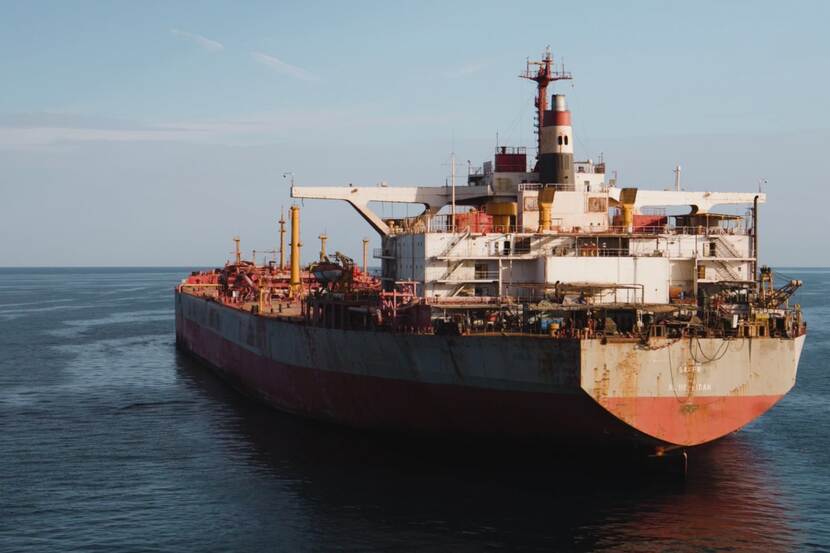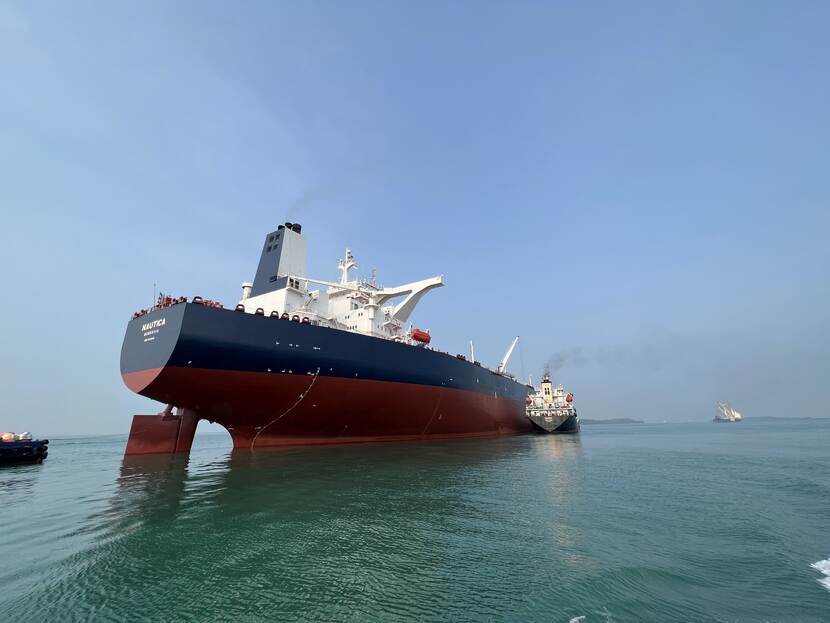Swift action needed to salvage oil tanker Safer and prevent a new blow to Yemen
The tanker Nautica is heading to Yemen to pump oil from the derelict tanker FSO Safer. The ship could break apart at any moment, triggering a major environmental disaster. The Netherlands is helping to fund a salvage effort being coordinated by the United Nations.
The Dutch Minister for Foreign Trade and Development Cooperation, Liesje Schreinemacher, announced the Netherlands’ €7.5 million contribution to the project in March 2022. That amount has now increased to €15 million.
‘Normally, as minister, it’s my job to deal with the repercussions of disasters,’ Ms Schreinemacher noted. ‘But in this instance we have a chance to prevent a disaster. The Safer is a ticking time bomb. We need swift action. It’s encouraging that so many countries have pledged their financial support. Thanks in part to the Netherlands’ contribution we now have the necessary funds to start salvaging the vessel. Obviously, all the other parties will have to follow through on their pledges as well. The Netherlands stands ready to help the UN start this operation as soon as possible.’
Supertanker
FSO Safer is a 40-year-old supertanker moored around 8 kilometres off the coast of Yemen with a huge cargo of oil. Due to years of neglect, the vessel is decaying. The risk of leakage, fire or even an explosion is high. If no action is taken, large quantities of oil could spill into the Red Sea.
The consequences of an oil spill would be enormous. It would have a huge impact on the environment and shipping and on the livelihoods of hundreds of thousands of people who depend on small-scale fishing. The UN estimates that a spill would cost $20 billion to clean up and that it would take another 25 years for fish stocks to recover from an ecological catastrophe of this magnitude. Taken together, these potential consequences pose a huge humanitarian risk for a country that is already suffering food shortages. The UN is therefore committed to taking swift action, in concert with a number of countries including the Netherlands.
Boskalis
The Dutch salvage company Boskalis/SMIT Salvage, which specialises in dredging and maritime services, has taken on the task of recovering the Safer’s cargo of oil and salvaging the vessel. The company has been preparing for this operation for two years, without any of its team yet having set foot on board the ship. That is unique, says CEO Peter Berdowski. ‘When we undertake a salvage operation, we usually only have days and sometimes only hours to get a picture of the situation on board.’ This time is different. ‘We carry out a lot of salvage work around the world, and we don’t often have to deal with a ship that is in worse state than the Safer,’ he explains.
Ticking time bomb
Like Ms Schreinemacher, he calls the ship a ticking time bomb. ‘There are 1.1 million barrels of oil on board, and oxygen has been detected in all the storage tanks. That could cause a gigantic explosion. We should definitely not underestimate the dire condition this ship is in.’
Boskalis is therefore going about its task with due caution, says Mr Berdowski. ‘We’re continually weighing risks. Can we berth our own vessel safely alongside the Safer? Is the tanker’s hull strong enough for pumping to commence? What condition will the oil be in when it comes out of the tanker? We won’t know that until the transfer operation has started.’
The difficulty of the task is underlined by Peter-Derrek Hof, the Dutch ambassador to Yemen. ‘This salvage operation is extremely difficult. There are underlying political issues and it’s also an engineering challenge. And then of course there’s the financial aspect. On that point the Netherlands is shouldering its responsibility and has made averting an ecological disaster in the Red Sea a priority. We’re the second biggest donor in this salvage effort.’
What will happen next?
Now that Boskalis has given the go-ahead, all the oil will be transferred to a specially equipped tanker. The Safer can then be safely cleaned and towed away. It is still uncertain what will be done with the oil. Difficult issues first need to be resolved in light of different countries’ contributions and interests. But everyone agrees on one thing: the first step is to transfer the oil from the Safer as quickly and safely as possible in order to avert a huge humanitarian and environmental disaster.

